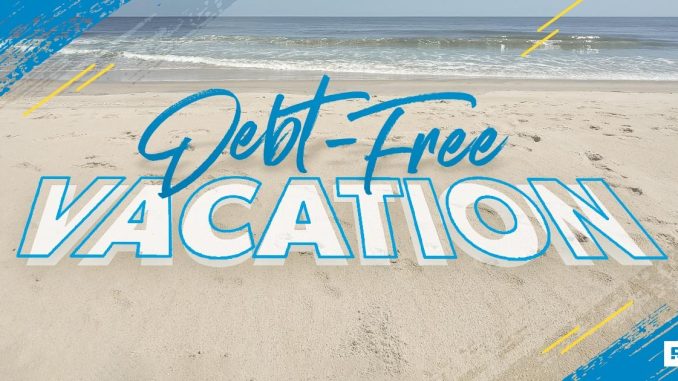
For many, the dream of a relaxing vacation is often tainted by the looming reality of post-trip credit card bills. The allure of an exotic destination or a much-needed escape can lead to a “buy now, pay later” mindset, resulting in a financial hangover that lasts far longer than the memories. However, the true essence of a vacation—rest, rejuvenation, and freedom from stress—is completely at odds with the burden of debt. Planning a debt-free vacation isn’t about giving up your travel dreams; it’s about a strategic and mindful approach that ensures your journey is as financially sound as it is enjoyable. It’s a practice that replaces impulsive spending with intentional planning, allowing you to return home with a refreshed spirit and a healthy bank account.
The first and most crucial step in planning a debt-free vacation is to establish a realistic and specific savings goal. Instead of simply saying, “I want to save for a trip,” you need to define the destination, the duration, and a clear budget. Research is your best friend here. Get an honest estimate of the costs for flights, accommodations, transportation, food, and activities. This process not only gives you a tangible number to work toward but also helps you make more informed decisions from the outset. For example, you might discover that a week-long trip to one city costs the same as a two-week adventure in another, leading you to a more affordable and potentially more rewarding destination. Once you have a target number, you can then divide it by the number of months you have until your trip, giving you a clear, manageable monthly savings goal. This simple act turns a vague aspiration into a concrete financial plan.
With your savings goal in place, the next phase is to proactively find the money to fund your travel. This is where you can get creative and make some short-term adjustments to your spending. Instead of seeing this as a period of deprivation, reframe it as a focused, temporary effort toward a rewarding goal. For example, you could commit to bringing your lunch to work for a few months, cooking at home more often, or temporarily pausing a subscription service you don’t use frequently. These small, deliberate changes free up cash flow that can be directly channeled into a dedicated savings account for your vacation. It’s also an excellent time to explore additional income streams, such as selling unused items, taking on a side hustle, or even leveraging credit card rewards points for flights and hotels. The key is to see every dollar saved or earned during this period as a direct investment in your future vacation, making the effort feel purposeful and motivating.
As the trip draws closer, the focus shifts to smart booking and on-the-ground spending. To avoid the temptation of credit card debt, it’s essential to pre-pay for as many expenses as possible. Booking flights and accommodations well in advance and paying for them in full ensures that a significant portion of your budget is already covered. Consider looking for packages that include meals or activities to lock in costs and avoid unexpected expenses. On the trip itself, a key strategy is to create a daily budget for discretionary spending on food and entertainment. This doesn’t mean you can’t have fun; it means you’ve allocated a specific amount for spontaneous splurges, giving you the freedom to enjoy yourself without anxiety. Using cash for your daily expenses can be particularly effective, as it provides a tangible limit and makes you more mindful of every dollar you spend.
Ultimately, a debt-free vacation is a testament to the power of intentional living and disciplined planning. It demonstrates a commitment to prioritizing your well-being not just during your time away, but in the months leading up to it. By setting a clear savings goal, proactively funding your travel, and making smart choices during your trip, you ensure that your vacation provides the genuine escape you were seeking. You get to return home not with the stress of new debt, but with the confidence and peace of mind that comes from a well-earned, financially responsible experience. This approach transforms a vacation from a temporary escape into a true and lasting reward for your hard work.